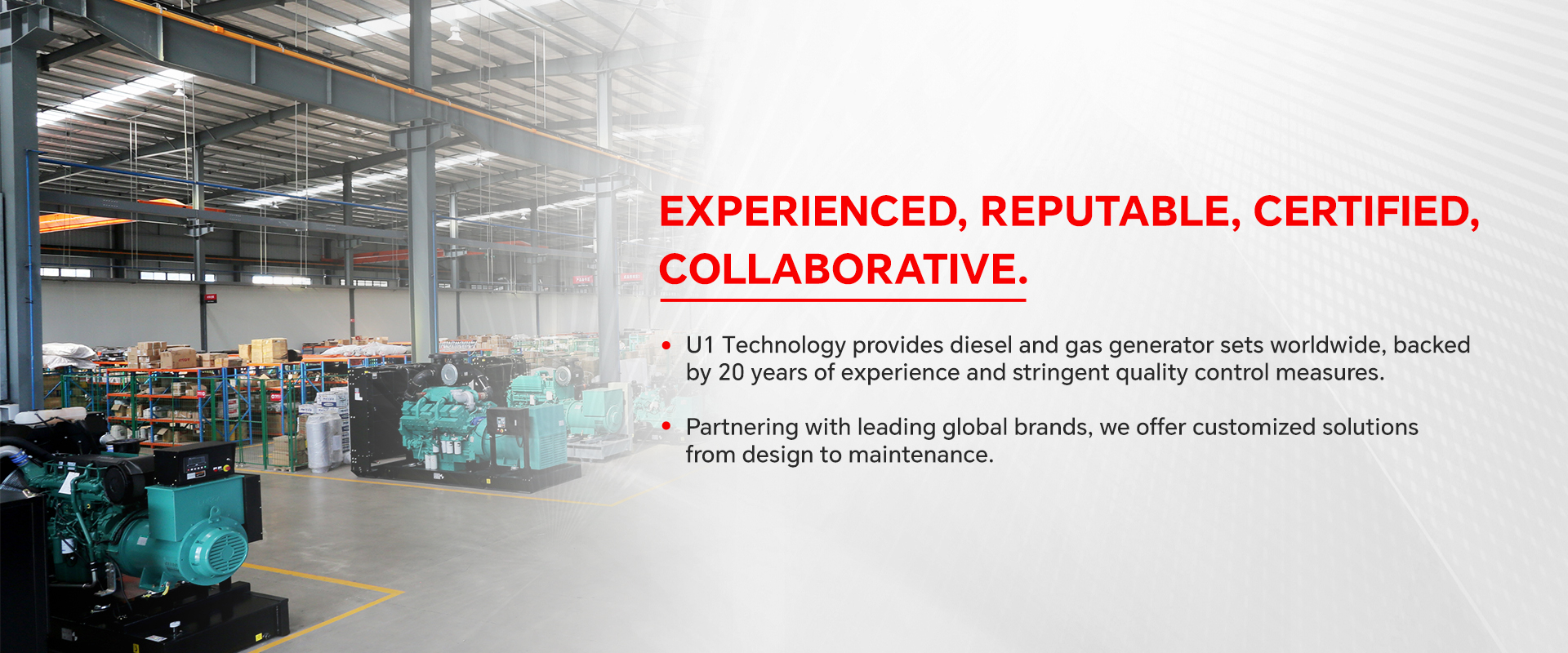In the realm of backup power generation, two prominent options stand out: gas and diesel generators. If the power goes out, as well as the requirement for it might be critical, deciding on the best generator set may make a big difference. But wait, how can you decide between propane and diesel generators? Each one has its very own pair of advantages and disadvantages, and also the choice ultimately depends upon your unique needs and circumstances.

On this page, we’re going to explore the distinctive features, advantages, and cons of gas and diesel generator sets, enabling you to come up with a well-informed decision where option aligns best with your needs.
Gas Generators
Advantages
Cleaner Emissions: Most significant attributes of propane generators is the lower environmental impact. When natural gas burns, it generates fewer harmful emissions, for example particulate matter, nitrogen oxides, and sulphur dioxide, when compared to a diesel genset. This makes natural gas generators an eco-friendly option for those concerned about quality of air and environmental sustainability.
Cost-Effective Fuel: Natural gas is usually cheaper than diesel fuel. The charge savings can be significant over the long term, specifically if you prefer to make use of your generator frequently. Furthermore, the production of propane tends to be more stable, reducing price fluctuations.
Less Maintenance: Gas generators typically require less maintenance than their diesel counterparts. This is caused by the cleaner-burning nature of gas main, which ends up in fewer deposits and soot buildup inside the engine, extending the generator’s lifespan.
Quieter Operation: Natural gas generators provide quieter operation. It is a vital consideration in residential areas and settings where noise pollution should be minimized.
Disadvantages
Limited Fuel Storage: A problem with gas generators is reliance on a nonstop supply of gas. This is problematic during extended power outages or even in remote locations where a frequent gas main supply will not be available.
Lower Energy Density: Gas has a lower energy density in comparison with diesel, meaning you could need a larger storage capacity or maybe more frequent refuelling for similar output.
Lower Fuel Efficiency: Propane generators are usually less fuel-efficient than diesel generators, which may increase operational costs ultimately.
Lower Portability: As a result of requirement for an avid natural gas supply, these generators are less portable and versatile than diesel generators.
Diesel Generators
Advantages
High Energy Density: Diesel fuel is acknowledged for its high energy density. Therefore diesel generators can provide more power in the smaller package, driving them to well suited for applications where space is limited.
Fuel Storage: Diesel generators have the benefit of to be able to store fuel for extended periods without degradation. This makes them a dependable choice for backup power in remote locations and in long-term power outages.
Fuel Efficiency: Diesel generators have fuel efficiency, consuming less fuel for similar output as gas generators. This results in lower operational costs.
Greater Reliability: Diesel engines are usually better quality and durable, be a catalyst for greater reliability in demanding conditions. They are generally the go-to choice for mission-critical applications.
Disadvantages
Emissions and Environmental Impact: Diesel generators emit higher amounts of pollutants, including nitrogen oxides and particulate matter, that may have negative effects on quality of air and public health. Stricter emissions regulations happen to be performed to mitigate these complaints.
Noise Levels: Diesel generators are generally noisier than gas generators, which may be a concern in residential areas or where environmental noise is a consideration.
Fuel Availability and Cost: Diesel fuel could be costlier and susceptible to price fluctuations. Additionally, storing large quantities of diesel fuel can cause safety and environmental risks.
Maintenance Requirements: Diesel generators typically want more frequent maintenance as a result of soot and carbon buildup within the engine, which could increase the overall cost of ownership.
When you should Choose Propane Generators?
Environmental Concerns: Should you prioritize environmental sustainability and cleaner emissions, a natural gas generator may be the strategy to use.
Personal savings: If you’re planning to reduce fuel costs in the long run and also have access to a dependable natural gas supply, gas main generators may be more cost-effective.
Quiet Operation: In areas or places where noise levels should be kept low, natural gas generators will be the quieter choice.
More uncommon Use: If your generator functions as a backup for occasional power outages, the bottom maintenance requirements of gas main generators make them an opportune option.
When you should Choose Diesel Generators?
High Power Requirements: Should you prefer a high-power output in the compact package, diesel generators, using their high energy density, will be the better choice.
Reliability: For mission-critical applications where reliability is vital, such as data centres or healthcare facilities, diesel generators will often be preferred this can robust and sturdy engines.
Remote Locations: In areas with limited usage of an all-natural gas supply or during long-term power outages, diesel generators making use of their reliable fuel storage would be the better choice.
Frequent Use: If your generator will dsicover frequent use and also you prioritize fuel efficiency, diesel generators could be less expensive over time.
Conclusion
The decision between natural gas and diesel generators is determined by your requirements, budget, and environmental concerns. Both forms of generators their very own pros and cons, as well as the key’s to softly evaluate your requirements and priorities before making a choice. Additionally, make sure you understand local regulations and emissions standards that could affect your decision.
More details about Jenbacher spare parts check our new site
